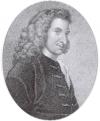Biography
Henry Fielding (Sharpham, 22 April 1707 - near Lisbon, 8 October 1754) was an English novelist and dramatist known for his rich earthy humour and satirical prowess, and as the author of the novel Tom Jones.
Aside from his literary achievements, he has a significant place in the history of law-enforcement, having founded (with his half-brother John) what some have called London's first police force, the Bow Street Runners, using his authority as a magistrate.
Whereas Defoe and Richardson both attempt to hide the fictional nature of their work under the guise of 'memoirs' and 'letters' respectively, Henry Fielding adopted a position which represented a new departure in terms of prose fiction?in no way do his novels constitute an effort to disguise literary devices. In fact, he was the first major novelist to openly admit that his prose fiction was pure artifice. Also, in comparison with his arch rival and contemporary, Richardson, Fielding presents his reader with a much wider range of characters taken from all social classes.
Fielding's lack of psychological realism (i.e. the feelings and emotions of his characters are rarely explored in any depth) can perhaps be put down to his overriding concern to reveal the universal order of things. It can be argued that his novel Tom Jones reflects its author's essentially neoclassical outlook?character is something the individual is blessed with at birth, a part of life's natural order or pattern. Characters within Fielding's novels also correspond largely to types; e.g. Squire Western is a typically boorish and uncultivated Tory squire, obsessed with fox hunting, drinking and acquiring more property.
So Fielding's comic epic contains a range of wonderful?but essentially static?characters whose motives and behaviour are largely predetermined. There is little emotional depth to his portrayal of them, and the complex realities of interactive human relationships that are so much a part of the modern novel are of negligible importance to him. Perhaps the character we come to know best is the figure of the omniscient narrator himself (i.e. Fielding) whose company some of his readers come to enjoy ..






